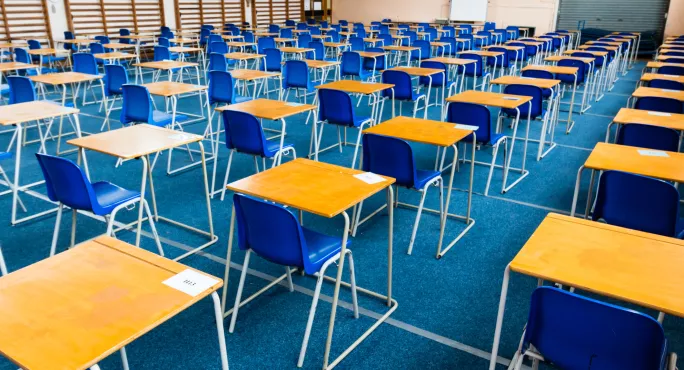Scotland’s equality regulator has said plans to use a school’s previous attainment as part of the new process for awarding grades this year could be illegal.
The Equality and Human Rights Commission (EHRC), which can order public bodies to act, said it is “concerned” over the Scottish Qualification Authority (SQA) proposals, which have come in the wake of the decision to cancel this year’s exam diet as a result of the coronavirus pandemic.
Background: New statement on Scottish qualifications
News: SQA responds to concerns about new system for grading
Opinion: ‘It’s impossible to meet the SQA grading demands’
Sturgeon: Qualifications process ‘very clear’
Teachers have expressed their fears that high-attaining students in schools which have traditionally had lower attainment - usually those serving deprived areas - could be disadvantaged by the new arrangements which will see past attainment used to moderate teacher estimates. There are also concerns pupils from black, Asian and/or minority ethnic (BAME) backgrounds could be disadvantaged by unconscious bias.
The EHRC said it had been in touch with the SQA “to ensure that the process for estimating grades does not exacerbate the unequal educational outcomes for some groups of pupils, such as those with additional support needs or those who attend schools with lower overall attainment which are often situated in areas of multiple deprivation”.
The body had said it had “made it clear to the SQA that they must complete and publish an equality impact assessment (EIA) of the alternative certification model, including the changes to the estimation process”.
The EHRC said this was not only “a legal requirement” but was also “the right thing to do” because it would provide “clarity and transparency” to teachers, pupils and their parents.
However, the EHRC concluded: “At this time we remain concerned that SQA have been unable to demonstrate that they have considered any equality issues in their work in this area, or that they have met their legal duties in this regard.”
On Friday, the Scottish Parliament’s Education and Skills Committee wrote to the SQA expressing its concerns that - since previous attainment of a school could be a factor in establishing the final grade of individual students - the process for awarding qualifications this year “could have a disproportionate impact on the grades of students from deprived areas”.
In the letter, the committee recommended an EIA be carried out and specifically asked the SQA if it planned to publish one “before the methodology for moderation is finalised”.
The committee also used the letter to highlight “the deep unease expressed by numerous teachers about the requirement to rank students” and the need to “provide clarity on the appeals process before teachers submit their estimates”.
Dr Lesley Sawers, Scotland commissioner for the Equality and Human Rights Commission said: “We know this is a difficult time for people working in education. It is also difficult for pupils. After years of hard work, control of their qualifications will be taken out of their hands. If we don’t get this right the future of some disadvantaged young people is at risk.
“Research suggests there may be patterns of conscious or unconscious bias when estimating grades. With this in mind, there is a danger that predicting grades may have an adverse impact on some disadvantaged groups.
“We will continue to work to ensure SQA meet their obligations to undertake and publish an equality impact assessment of their alternative accreditation model and of the policies and processes which will follow.”
An SQA spokesman said: “As a public body, SQA is covered by equality legislation and we are, of course, ensuring we meet our obligations by producing an equality impact assessment on our approach to certification this year.
“We have already made that clear to the Education and Skills Committee and the EHRC.
“It is also our intention to publish the assessment.”





